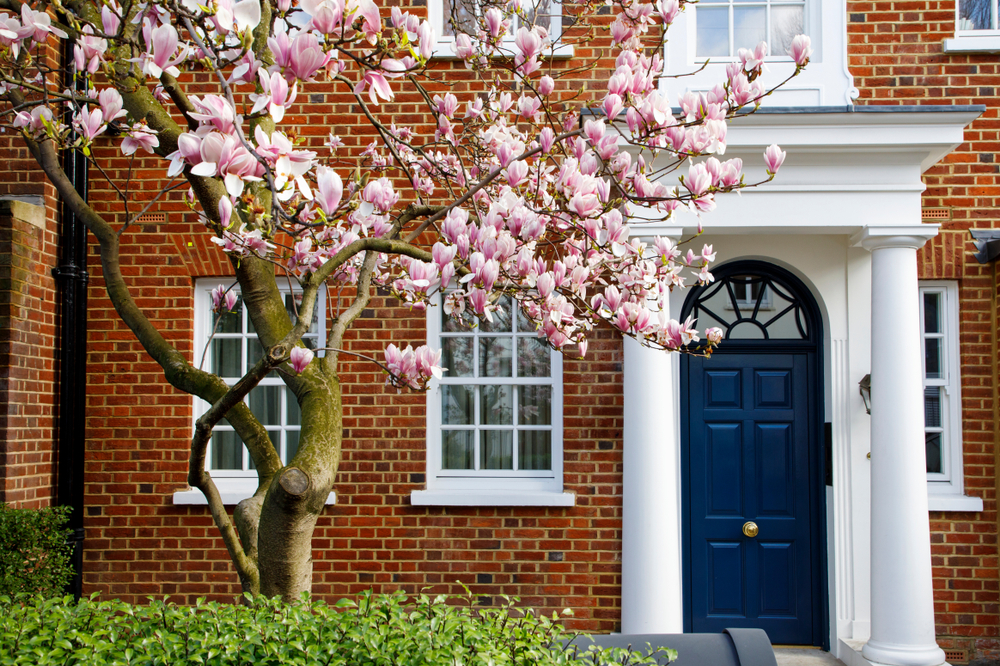Over 6 million people tuned in to see the recent series of The Traitors UK, set once again in the beautiful Ardross Castle, a 19th Century pile about 30 miles north of Inverness, with 100 acres of gardens and parkland. Purchased by Sir Alexander Matheson in 1845 for £90,000, equivalent to over £13m in today’s money, it’s easy to see why so many of us have fallen in love with the idea of owning a castle.
Buying a Castle in Scotland
You might be surprised to know, however, that this isn’t the only eye-dropping Caledonian property for sale in the glorious Scottish highlands. Country Life’s recent article featured several tartan fortresses available for sale starting from £1.65m. Many high Street estate agents and online property portals now list castles for sale, or you can browse dedicated sites like Castleist. Bear in mind that the most prestigious properties are typically sold off market, so another option is to use a specialist buying agent to get access to those not publicly listed for sale.
If you’re serious about buying a castle, however, there’s a few things you’ll need to take into consideration.
More Than Just a House with Turrets - Carry out Your Research
Before making any kind of commitment it’s useful to know the history of the castle and its current state of conservation, otherwise you may find yourself with a list of expensive repairs down the line. You’ll also need to consider the future and ongoing maintenance costs of keeping the building and grounds in good condition, including staffing, security, and insurance.
Look into any specific planning permissions or applicable building regulations that will affect restoration or improvement work to the castle now or in the future, and any heritage protection laws that might apply. Make sure you understand the possible uses of the castle, including residential, commercial, or historic uses. This also applies to the uses of the surrounding land and any outbuildings, barns, or other properties on it. Chances are there’ll be a significant amount of land to consider, so you don’t want to fall foul of disputes later on regarding access or boundaries.
Get in the Know
Subscribe to our newsletter
Consider Hiring a Search Specialist
Hiring a specialist when buying a castle can be extremely beneficial as they’ll bring a significant amount of knowledge to the (round) table, regarding the many considerations and constraints that come with purchasing a property of this nature. They can even help you find what you’re looking for in a castle property, in terms of architectural style, specific features and size.
A specialist can also provide an understanding of the historical significance and guidance on the architectural aspects of the property, including its structural condition, particularly around any potential issues that might arise. They can provide recommendations for repairs or renovations to help you make a lucrative long-term investment and help with any conservation or protection issues. They will also be able to advise on the consent required for any potential renovations. Such works are significantly determined by the property’s listed states, which can often mandate the use of specific tradespeople and materials.
Finance can also be sourced to fund these potential redevelopment works, as was the case with Castle Toward, another one of Scotland’s amazing picturesque stately homes. Built in the 19th Century, this Grade B-listed pile sits on the Cowal Peninsula, overlooking Rothesay Bay in Argyll and Bute on the west-coast of Scotland. In this case funding was successfully secured to transform the property into a high-end national landmark venue, an investment case aided by the likely potential boost to the local economy. Important in this extremely remote part of the mainland..
In the long run using a specialist will probably save time on administrative or paperwork tasks which are much more involved than with a standard property purchase. As well as help you make better informed decisions in the long run.
Understand the Legal Process
For castles located north of the border the buying process is actually quite different to the rest of the UK. One of the main differences is that there’s no gazumping allowed. Most homes are sold through a blind bidding system, based on an ‘offers over’ starting price, which means there’s no visibility of who else is bidding and for how much. So, unless you have a master plan to take down the other traitors (I mean bidders), it’s typically advisable to go in with your best offer up front, or risk being banished. If you’re buying privately through an agent this might not be so relevant, but it’s always prudent to understand how things work.
Sellers in Scotland must also provide a home buyers report up front, so you’ll have a good idea of the condition of the castle before you make an offer. This will cover aspects like previous damage from storm, fire or other events, alterations or extensions, energy efficiency and accessibility. Although a full and thorough structural evaluation would typically also be advisable for properties more than 50 years old. Again specialist advise is essential.
Another key difference is that solicitors play a much more prominent role in the property buying process in Scotland. Offers are formerly made by your solicitor and once the seller agrees to sell you their home, they'll accept the offer through their solicitor dependent on certain conditions. Once these conditions are finessed by your legal teams (known as missives) and you agree on the terms, you have a binding contract. if you pull out of the deal at any time after this, you’ll be liable to pay damages to the seller, unlike in England where the sale only becomes legally binding once contracts are exchanged.
Securing a Multi-million Mortgage fit for a King
Given the average price of a castle, you’re likely to need a substantial mortgage amount. Many high street lenders have a maximum loan value of £1m, and whilst some will offer more than this, loans from high street banks are generally not as flexible. A million plus mortgage is a specific type of mortgage available to high-net-worth individuals who meet certain income and asset requirements.
As well as the obvious benefit of higher borrowing amounts, these types of mortgages provide other advantages such as access to exclusive deals which can include preferential interest rates, cashback, and other perks. Many offer repayment terms tailored to your specific financial situation, and you’re likely to get a more personalised service, including a dedicated account manager and customised loan packages.
Be aware that some lenders may be more cautious when it comes to lending against properties that aren’t of a standard construction (a house that doesn’t conform to the typical materials of brick or stone walls with slate or tiled roofs). Experienced specialist brokers, such as ourselves will help negotiate on your behalf and find a premium mortgage deal for your specific needs, usually through relationships with private lenders who are more flexible in their underwriting criteria. Often these negotiations are highly complex and tailored uniquely to the borrower and of course the property, and therefore typically hard to uncover and access through individual endeavours.
Follow these steps to buying your very own castle, and you could be laird of the manor sooner than you think.
The views and opinions expressed in this piece are those of the author and do not constitute advice or a recommendation. They do not necessarily reflect the official policy or position of Enness and are not intended to indicate any market or industry viewpoints, or those of other industry professionals





